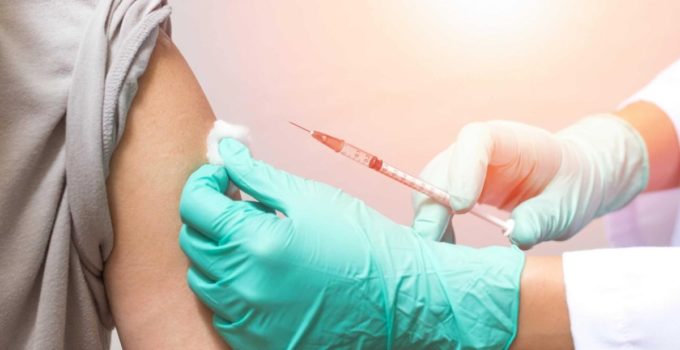Life as we Knew it:
COVID-19 Rules Update and Recommendations: Our lives have once again changed to be the closest to a life before COVID-19. Exit the traffic light system and vaccination mandates. For businesses, it is again time to review your health and safety risks.
COVID-19 Vaccinations: Employment Implications

I will start with stating my personal view on the COVID-19 vaccination. I do this because I am cognisant of the fact the lens I see this issue through may affect the approach I take, the information I gather[1], the interpretation of that information, and ultimately the analysis of the health and safety risk I make and measures I deem to be reasonably practicable to manage that risk.
I will be vaccinated as soon as the vaccination is available to me. My reasons can be viewed here, however this is not an article intended to debate that issue, rather it is about the practicalities and implications of the choices and decisions individuals will take about this.
What we know
While there is a great deal we don’t know, there are a few things we do.
- Existing employees cannot be required to have the COVID-19 vaccination. The NZ Bill of Rights Act permits individuals to refuse medical treatment. This includes getting vaccinations.
- The government can mandate a medical intervention when the collective good is deemed to outweigh the individual right. An example of this is fluoride in water supplies. However the government has not mandated the vaccination. It is my view they will not do this.
- An employee does not have to tell their employer whether they have been vaccinated.
- An employer can ask their employee if they have been vaccinated, however the employee does not have to provide an answer.
- If an employee does not provide an answer the employer can assume they have not been vaccinated.
- An employer cannot disclose an employee’s vaccination status to others (including colleagues), unless the employee consents to this.
- Our borders will not remain closed forever. When they are opened COVID-19 will get into the community.
- The requirements of an employer under the Health and Safety at Work Act remain the same. The employer must provide protection from workplace health and safety risks in the workplace, so far as is reasonably practicable.
- A portion of the adult population will not be vaccinated whether by active choice, circumstances (eg pregnancy) or they are unable to be vaccinated for medical reasons.
- Medsafe has advised no-one under the age of 16 should receive the vaccination at this stage. That age group accounts for 20% of the population.
- Vaccination efficacy is approximately 95%, meaning one in 20 vaccinated people will not be protected from COVID-19.
- To achieve herd immunity we need a minimum of 70% – 80% vaccination rate of the entire country.
- Adding point 10 and 11 together means we would need pretty much every person over 16 to be vaccinated to be in with a shot of achieving herd immunity.
Scenarios to consider
There are a number of scenarios and questions for employers to consider. This is by no means an exhaustive list, but a good start to begin discussions in your organisation.
- An employee refuses to work with an unvaccinated colleague.
- A customer refuses to be served by an unvaccinated employee.
- An employee refuses to serve an unvaccinated customer.
- Will you provide face to face services to unvaccinated customers?
- A customer asks which of your employees have been vaccinated.
- An employee is unable to be vaccinated (due to health reasons).
- An employee has a child at home who is immune compromised and is working with an unvaccinated colleague.
- If you have volunteers in your organisation what are going to be your requirements of them. They do not have employment rights so will you engage with unvaccinated volunteers. (They do have human rights so be careful you don’t fall foul of any discrimination requirements particularly in relation to religion and disability)
- Are you going to require contractors, as part of your health and safety requirements, to be vaccinated?
- Will you require new employees to be vaccinated as a condition of employment? (Be careful of not impinging on an individual’s human rights in terms of disability and religion.)
- Are there other ways (other than vaccination), that can adequately protect against the spread of COVID-19 such as mask wearing, social distancing, or working from home.
- Will you incentivise employees to be vaccinated?
- Will you provide paid time from work for employees to be vaccinated or arrange for vaccinations to be provided at work?
Where to from here?
Ultimately the issue is a health and safety one. As with any health and safety matter, it requires a risk assessment and management of that risk. For example if an employee has not been vaccinated you will need to assess the risk of potential harm that person poses to others, and what you are going to do to take all practicable steps to manage it. This may take many different assessments that will constantly be reviewed as new information is available. For example measures taken while there is no community transmission will change when there is COVID-19 in the community. The safety measures taken for an unvaccinated person who works primarily outdoors and does not interact face to face with clients will be different from the measures necessary with a front line health professional. No two scenarios are likely to be the same.
Begin these risk assessments now to provide a picture of what safety measures you will require of vaccinated and unvaccinated employees.
Start discussing the implications with your teams, the likely measures you are considering and ensure you are engaging with your health and safety representatives and unions. Spend time providing quality information that educates about the vaccination. Be open to questions and responding to employees’ concerns and resistance to being vaccinated. You could consider engaging the services of a health professional to meet with staff to answer questions.
Consider and determine your requirements of customers, contractors and volunteers to protect your employees, and whether you will engage with them if they are not vaccinated (if this is an option).
Finally, dismissing an employee who chooses not to be vaccinated is unlikely to be justifiable in most circumstances. It will be a hard task to demonstrate the risks cannot be managed in other ways.
My best advice is start planning now.
Useful links:
Employment New Zealand COVID-19 Vaccines & Workers
COVIC -19 Vaccines Employment Guidance
Ministry of Health COVID-19 Vaccines
Public Service COVID-19 Workforce Vaccinations Guidance
Health Navigator COVID-19 Vaccine Misconceptions
[1] We tend to read / gather more information that agrees with our perspective/opinion, not only because google analytics take us there, but because it reinforces our innate desire to be right.


